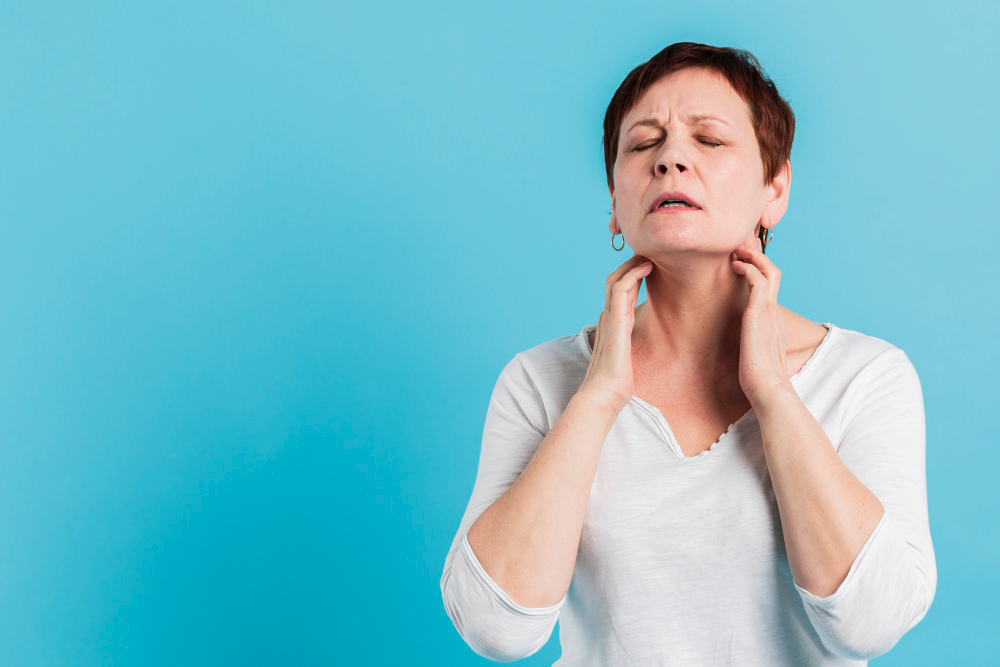


Currently, the most common medical condition that people are dealing with is thyroiditis, also known as thyroidism. The thyroid is like a small butterfly at the base of your neck, and it is responsible for your metabolism. Heart rate, digestion, energy levels, mood, mood, and hormone production are controlled by this gland. Thyroids have underactive hypothyroidism and overactive hyperthyroidism.
This is a comprehensive guide to thyroid disease, from the most common symptoms to the most recent diagnostic and treatment tools.

Hypothyroidism and hyperthyroidism are referred to as two types of thyroid diseases. They are distinct and can come with various conditions leading to the two conditions.
Conditions that can cause hypothyroidism include:

Hashimoto’s disease is among chronic autoimmune diseases that may cause the thyroid gland to work improperly. It is the leading cause of hypothyroidism in nations where salt iodization and other strategies of iodine enhancement are still relevant.
Iodine is important to make thyroid hormone and deficiency of iodized salt and other minerals in your diet can lead to hypothyroidism. The deficiency of these minerals can cause hypothyroidism. It can cause goiter (enlarged thyroid).
There are cases when babies are born with a missing or underactive thyroid. “Congenital” means “present from birth”.
This is a chronic autoimmune condition that causes an overactive thyroid. The most common cause of hyperthyroidism is seen as a grave disease.
There are some abnormal lumps found on your thyroid gland. If the nodules are hyperfunctioning, they can lead to hyperthyroidism.
Too much iodine in the body can cause the body to produce the thyroid hormones that a body needs.
Criteria that can hit both hypothyroidism and hyperthyroidism at different times.
This causes swelling of your thyroid gland. Firstly, it causes hyperthyroidism and then chronic hypothyroidism.
This is a condition that affects birthing parents after pregnancy. An estimated 5% of people may experience this the year after giving birth. Firstly, hyperthyroidism is caused and followed by hypothyroidism.
According to various studies on thyroid disease disorder, about 42 million people in India suffer from it. The rate of hyperthyroidism in India is 11%, whereas in the Western population, it is 2%–4.6%. Compared to coastal states, Inland states have a higher prevalence because of iodine deficiency.
There are no specific symptoms, but there are a variety of symptoms you could experience if you have this disease. Unfortunately, symptoms of thyroid conditions are often very similar to the signs of other medical conditions and stages of life. This can make it difficult to know if the symptoms are related to thyroid.

There are two groups of symptoms in thyroid disease – those related to having too much thyroid hormone (hyperthyroidism) and those related to having too little thyroid hormone (hypothyroidism). These symptoms are opposite of each other because hyperthyroidism speeds up your metabolism, and hypothyroidism slows down your metabolism.
Symptoms of hypothyroidism
Symptoms of hyperthyroidism include
Both conditions can cause an enlarged thyroid (goiter).
There is a higher risk of thyroid disease if you:

In the early stage of thyroid disease, the symptoms are so general that it can be challenging to determine if you are experiencing thyroid problems or something else. To get an accurate diagnosis, healthcare providers ask you to give blood samples to measure the levels of thyroid and thyroid-stimulating hormones.
There are other diagnostic tools that can be used.
Although it is impossible to check your thyroid for excess hormone production at home, you can perform an exam on yourself to see if any abnormal neck fatness can cause a problem.
There are treatments available for people with thyroid disease. Therapies include medications and natural remedies. Healthcare providers will want to alleviate the symptoms while restoring the thyroid hormone levels. If growth and nodules are seen, reducing their size will also be a part of the treatment plan.
Some body parts can be affected by thyroid disease. If you consistently follow the treatment plan to manage your health then it won’t be that serious.
Some of the complications from untreated or undertreated hyperthyroidism include:
Conclusion
Thyroid disorders are common concerns that can be well and effectively managed with proper diagnosis and treatment. You can take control of your thyroid health by understanding the symptoms, causes, and treatment options.


Whether you are suffering from arthritis pain, headaches, fatigue, depression, or even tumors, Dr. Ma Acupuncture Centre is the tried and tested provider of Chinese medicinal techniques that yield the desired results with the use of safe and proven effective solutions.
Here at Dr. Ma Acupuncture Centre, we are passionate about helping people feel better as they get healthier. We customize our acupuncture, Chinese Massage, and Gua Sha Therapy services to each individual’s precise needs. This means that you get the exact solution for your unique health issues every time.
So if you are in Ellicott City and are in search of the trusted specialist in acupuncture and Chinese Massage Ellicott City MD folks rely on, there is only one name to keep in mind – Dr. Ma Acupuncture Centre!

For additional questions, either fill out the contact form, send me an email, or give me a call at +1 443-756-0563, +1 301-473-2788